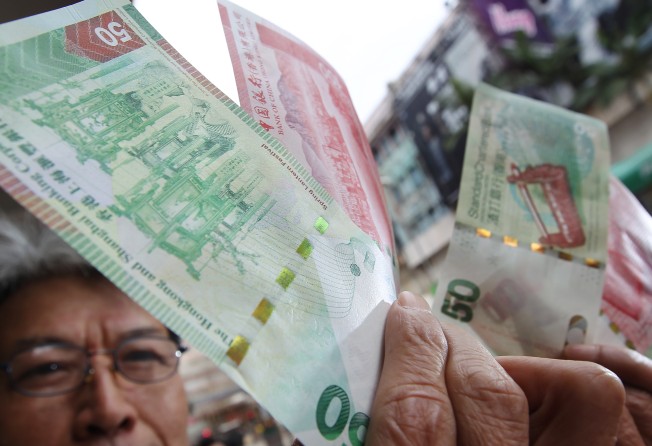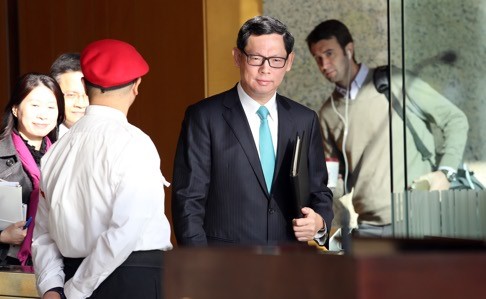Should Hong Kong let go of its peg to the US dollar now?
The long time peg means Hong Kong has to match increases in US interest rates despite having a weak economy going into 2016

The 32-year old peg of the Hong Kong dollar to the US greenback is being questioned again after the US Federal Reserve increased interest rates in mid-December, forcing the city to match the rate increase at a time when Hong Kong is looking at a weak economy in the year ahead.
Under the peg which was adopted in 1983, the city has had a stable exchange rate but it also means it is the US Fed, and not the Hong Kong Monetary Authority (HKMA), which decides the monetary policy or interest rate levels for Hong Kong’s economy.
Hong Kong is among the few economies worldwide still maintaining a peg linked system. Mainland China abolished the peg in 2005 and has kept a management float system since then in which the
This allowed Beijing to continue slicing interest rates next year to boost its slowing economy and not care too much about the rise in US interest rates.
Hong Kong however has no choice in the matter under the peg except to follow any US rate rise next year which analysts expect would hit about 1 per cent. This will further burden the city’s economy which is already hurting from a reduction of tourists and an economic slowdown in mainland China.
The HKMA increased the official base rate by 25 basis points to 0.75 per cent on December 17, a few hours after the US Fed increased rates to a target range of 0.25 to 0.5 per cent. This marked the first rate hike in both Hong Kong and the US in roughly 10 years.
The stark difference is the US economy is on an upswing while Hong Kong plainly is not.
Stephen Innes, a senior trader at OANDA Asia Pacific, said the peg “is outdated and certainly in need of reform.”
“There is no question that the Fed hike will add more pressure on the pegged Hong Kong dollar. It will leave Hong Kong in a very precarious spot again, making Hong Kong products less and less competitive in the region,” Innes said.
“As China moves to more open capital markets and to liberalise its currency, there may be some scope to accomplish reform. However, until a perfect replacement for the peg can be forged, it may be easier to stick with the status quo,” Innes said.
Bruno Lee Kam-wing, Asia head of wealth and asset management at Manulife, said the question about the suitability of the Hong Kong dollar peg always crops up whenever US interest rates are set to change.
“Of course, when the business cycles of the two economies become way out of synch, that is the time when the disadvantages of the HK dollar peg become much more visible and the costs also increase,” Lee said.
HKMA chief executive Norman Chan Tak-lam said the peg is the best option for Hong Kong as a small and open economy.
“The HKMA has no intention and no plan to change the peg,” Chan said.

Some commentators believe it is time to consider if Hong Kong dollar should be pegged with the yuan instead.
Brett McGonegal, chief executive of Reorient Group, said the yuan is not yet ready though, even after it was accepted into the Special Drawing Rights basket of the International Monetary Fund at the end of November.
“I don’t think that the RMB is quite to a level yet that would allow the transition. The yuan needs to further its convertibility and the internationalisation of the currency needs to mature further. The RMB doesn’t yet have enough of a global impact on valuation and the volatility that most likely ensues as it matures would not be ideal for pegging,” McGonegal said.
“Unless the policy making body is the same for both currencies, then there will always be discrepancies and issues in regards to monetary policy and the current economy,” McGonegal said.
Andrew Fung executive director of Hang Seng Bank, also said the peg linked system remains the best option for Hong Kong until the RMB capital account is freely convertible.
“We also can’t focus only on the negative side of the peg,” McGonegal explained. “This move hurts Hong Kong as a rate rise is not the proper prescription for the current economy. However, Hong Kong has benefitted greatly from the stability the US dollar peg has brought to the Hong Kong dollar.”